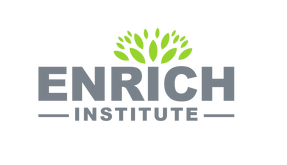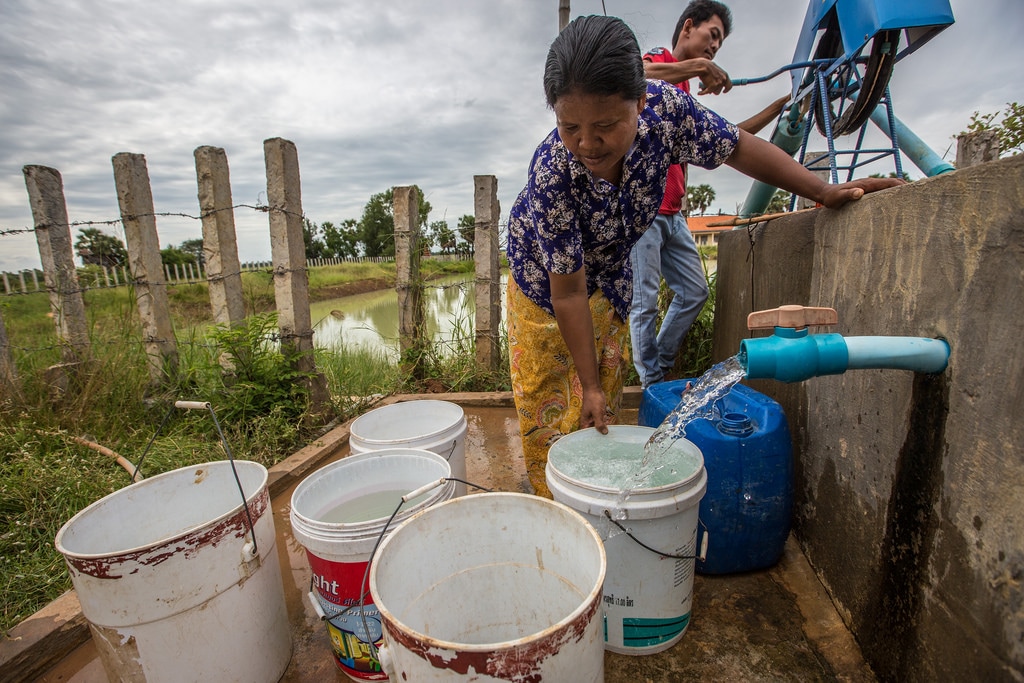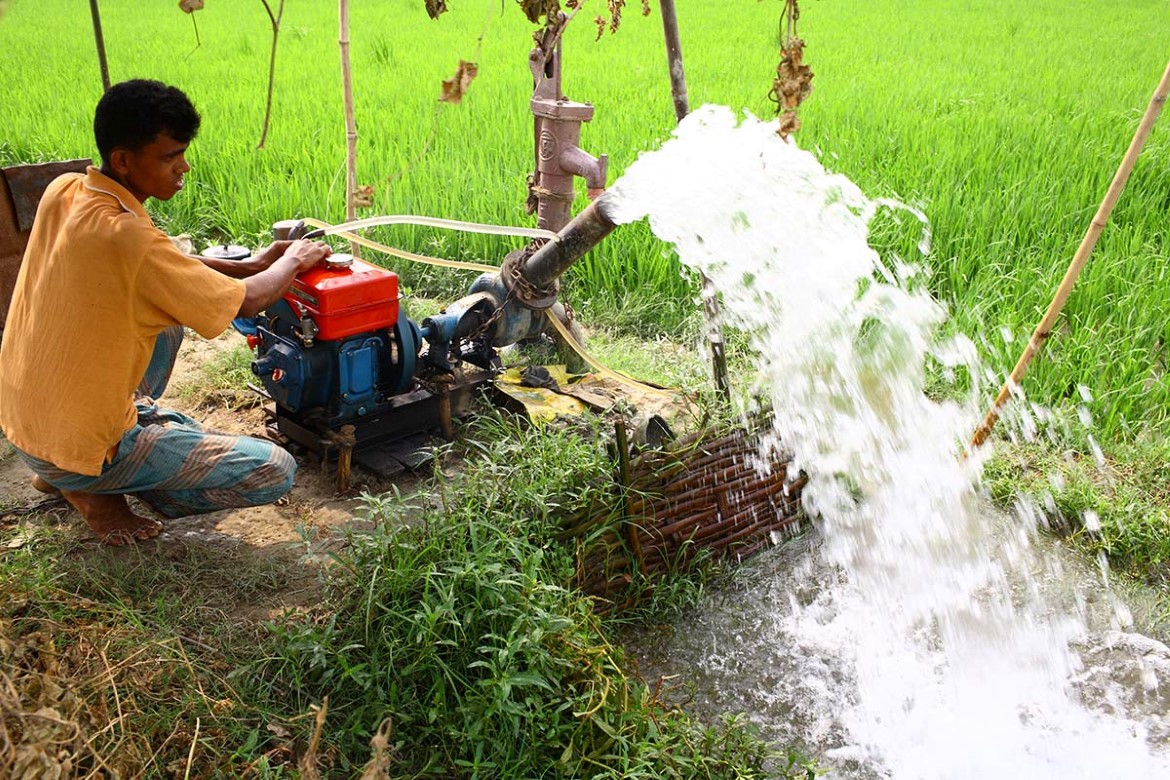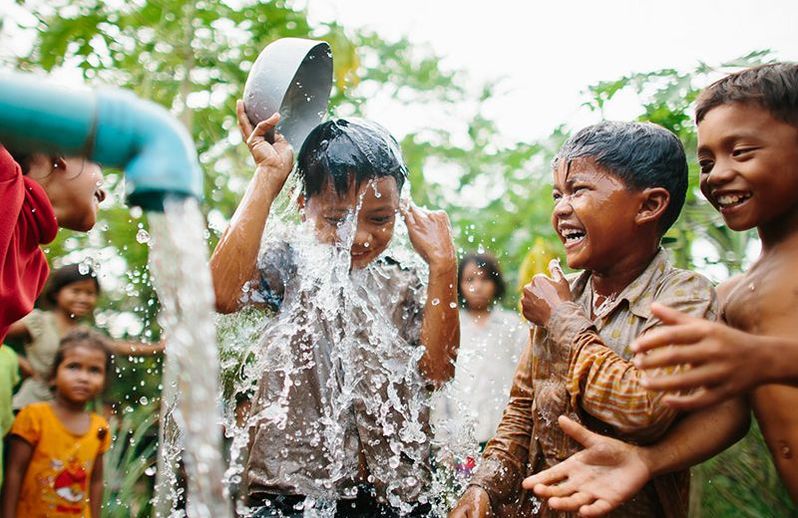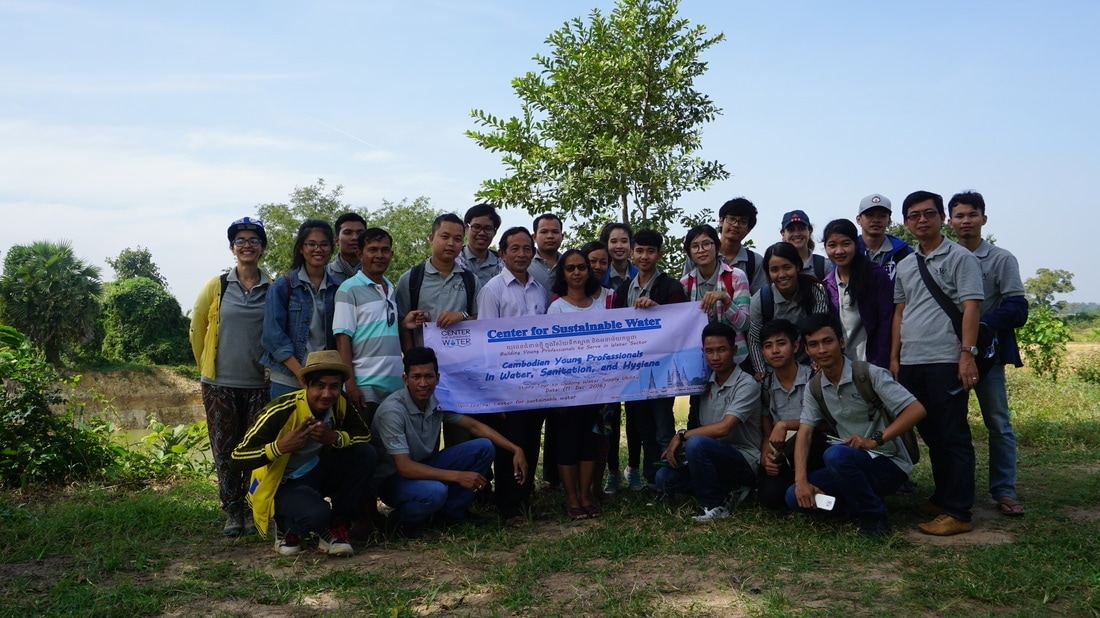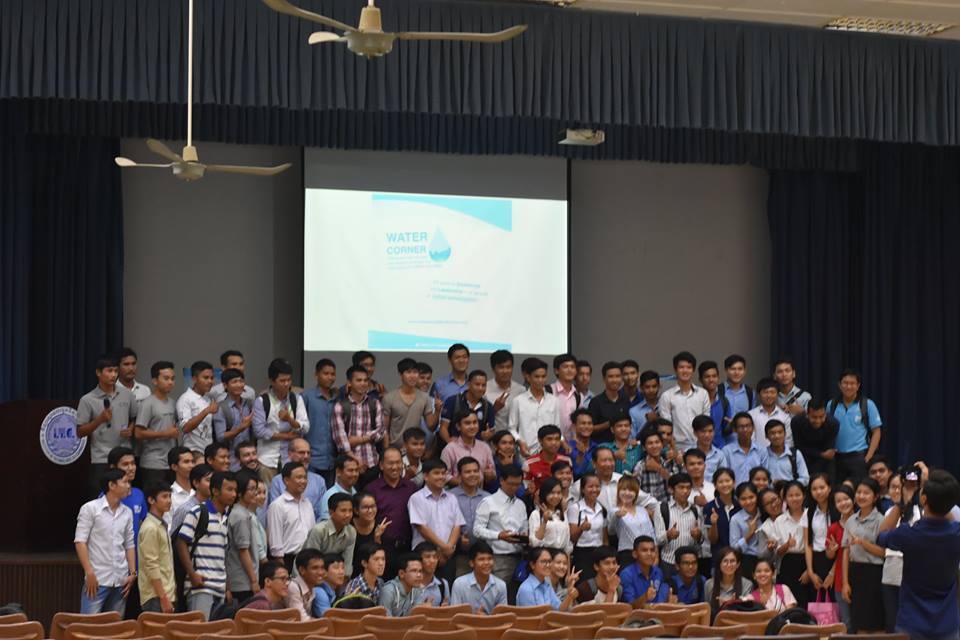Water is arguably one of the most precious resources of our planet. From 50 to 90 percent of the weight of living organisms, including human being is water. Without water, life would be impossible on Earth.
Water scarcity is a major global challenge. According to WHO and UNICEF, more than one in six people worldwide - 894 million - don't have access to this amount of safe freshwater. FAO predicted that by 2025, 1 800 million people will be living in countries or regions with absolute water scarcity, and two-thirds of the world population could be under stress conditions.
Cambodia has Tonle Sap Great Lake and the Mekong River as a main resource for the needs of human activities and ecosystems. The Mekong River connects many South East Asia countries such as China, Myanmar, Lao PDR, Thailand, Vietnam and Cambodia. Cambodia shares 19 percent of the river among other Mekong River countries which is considered that Cambodia is abundant of water resources for the economic mainstays of agriculture and fishery for the majority of its population. The country faces numerous challenges in developing, managing and conserving water resources in order for these to be used effectively, equitably and sustainably supporting lives of Cambodian populations and other habitats.
Although Cambodia is well endowed with water resources per capita but seasonal and spatial changes in availability result in shortages. Uncontrolled pollution impacts on quality of water. The implication to the degradation of water quality and pollution apparently happened due to human activities. In Cambodia, water and sanitation coverage is the lowest in the region. 50.9% of total population has access to improved water supply while 55.9% has access to improved sanitation. While around 3.8 million cannot access to improved water supply and around 9 million people cannot have access to improved sanitation in rural areas (CSES 2014).
Center for Sustainable Water is a knowledge platform that brings together non-professionals and professionals who have common interests in dealing with water related issues to deliver equitable and sustainable solutions for all. The center has its focuses to contribute to sustainable water management through building human resource in water sector, pioneering innovative solutions, and addressing uncertainties in water management in Cambodia.
Vision: We use our evidence-based research and innovative knowledge to contribute to sustainable water management for all.
Mission: Our mission is to improve capacity and knowledge for non-professionals and professionals to collaboratively solve the water problem together by:
The objectives could be achieved based on the following key principles:
Water scarcity is a major global challenge. According to WHO and UNICEF, more than one in six people worldwide - 894 million - don't have access to this amount of safe freshwater. FAO predicted that by 2025, 1 800 million people will be living in countries or regions with absolute water scarcity, and two-thirds of the world population could be under stress conditions.
Cambodia has Tonle Sap Great Lake and the Mekong River as a main resource for the needs of human activities and ecosystems. The Mekong River connects many South East Asia countries such as China, Myanmar, Lao PDR, Thailand, Vietnam and Cambodia. Cambodia shares 19 percent of the river among other Mekong River countries which is considered that Cambodia is abundant of water resources for the economic mainstays of agriculture and fishery for the majority of its population. The country faces numerous challenges in developing, managing and conserving water resources in order for these to be used effectively, equitably and sustainably supporting lives of Cambodian populations and other habitats.
Although Cambodia is well endowed with water resources per capita but seasonal and spatial changes in availability result in shortages. Uncontrolled pollution impacts on quality of water. The implication to the degradation of water quality and pollution apparently happened due to human activities. In Cambodia, water and sanitation coverage is the lowest in the region. 50.9% of total population has access to improved water supply while 55.9% has access to improved sanitation. While around 3.8 million cannot access to improved water supply and around 9 million people cannot have access to improved sanitation in rural areas (CSES 2014).
Center for Sustainable Water is a knowledge platform that brings together non-professionals and professionals who have common interests in dealing with water related issues to deliver equitable and sustainable solutions for all. The center has its focuses to contribute to sustainable water management through building human resource in water sector, pioneering innovative solutions, and addressing uncertainties in water management in Cambodia.
Vision: We use our evidence-based research and innovative knowledge to contribute to sustainable water management for all.
Mission: Our mission is to improve capacity and knowledge for non-professionals and professionals to collaboratively solve the water problem together by:
- Capturing intellectual assets for knowledge sharing
- Transforming knowledge to add value to the processes and operations of the counterparts
- Leveraging knowledge to accelerate growth and innovation in water sector
- Using knowledge to provide an advantage for better water management.
The objectives could be achieved based on the following key principles:
- Collaborate: Identify and build connections with various stakeholders at country level and regional level.
- Facilitate: Provide a platform for water experts, policy makers, and civil society to discuss openly about water related issues and innovations.
- Advocate: Conduct research to generate scientific evidences in order to inform the policy makers and for CSOs, to use evidences for their planning.
- Monitor: Focus on actions oriented to monitor the changes and bring into further discussion on water management issues.
